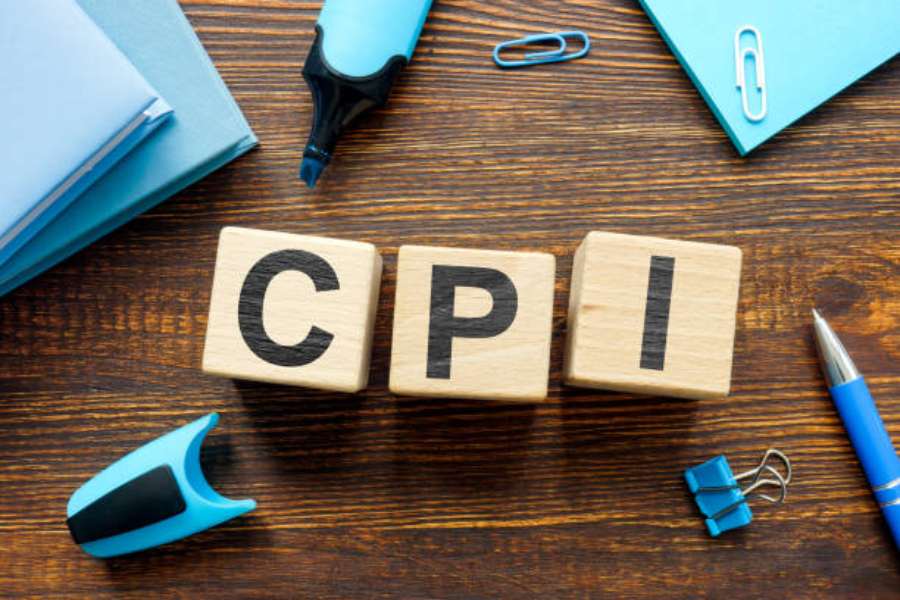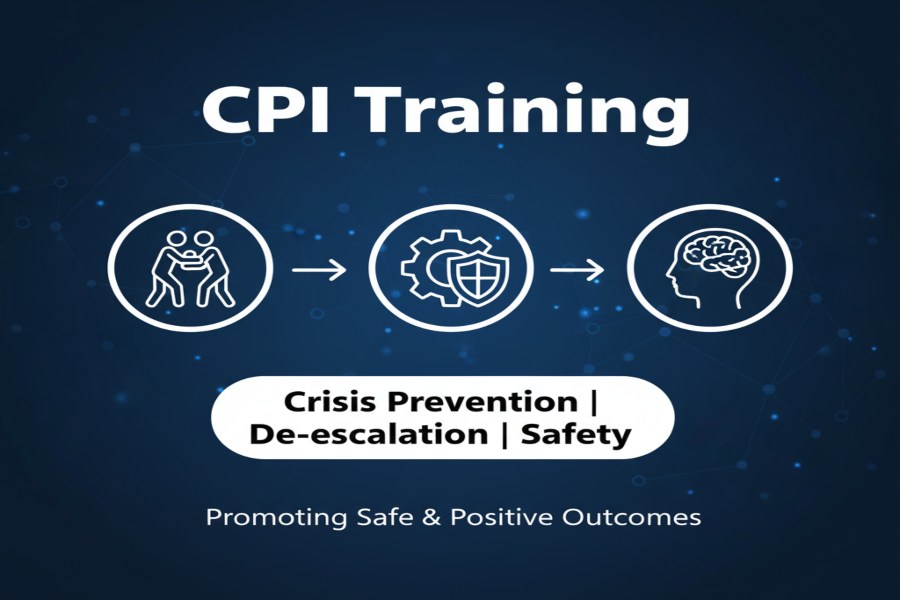Crisis Prevention and Intervention (CPI) training provides essential skills for handling and de-escalating potentially dangerous situations. Whether in schools, healthcare settings, or social services, this training equips individuals with strategies to manage challenging behaviors while maintaining safety and respect.
CPI’s emphasis on nonviolent intervention, de-escalation, and conflict management is crucial for creating a safe environment.
What Is CPI Training?
CPI training focuses on providing strategies and techniques that minimize the need for physical intervention. The core objective is to maintain safety and de-escalate situations without resorting to force.
CPI’s Nonviolent Crisis Intervention program is a prominent framework used across sectors like healthcare, education, and human services.
The Key Components of CPI Training
- Verbal De-escalation Techniques
Verbal communication is the first line of defense in managing aggressive or disruptive behavior. CPI trains individuals to use calm, clear, and authoritative communication to defuse potentially violent situations. Key techniques include:- Active listening
- Using a calm and controlled tone
- Recognizing and addressing underlying emotional triggers
- Recognizing Behavioral Cues
CPI training focuses on understanding the early signs of escalation, including body language, tone of voice, and facial expressions. This helps staff intervene before a situation escalates. - Physical Interventions
While CPI prioritizes nonviolent methods, physical interventions are sometimes necessary. However, CPI training emphasizes the importance of safe holds and proper restraint techniques that prioritize the safety and dignity of individuals involved. Physical interventions are used as a last resort. - Post-Crisis Support
After an incident, CPI training includes strategies to support both the individual involved and the staff. This includes debriefing, reflection, and ensuring emotional and psychological well-being after a crisis.
Who Should Take CPI Training?
CPI training is beneficial for professionals in a variety of fields where managing challenging behaviors is part of the job. Key groups include:

- Educators and school personnel
Teachers and administrators often work with students who exhibit challenging behaviors. CPI training equips them with the tools to address such situations safely and effectively. - Healthcare workers
Nurses, doctors, and caregivers in hospitals, clinics, and care homes often face patients who may become aggressive or agitated. CPI training helps these professionals maintain a calm and safe environment. - Human services workers
Individuals working in social services, including counselors and support workers, can benefit from CPI to manage crisis situations in their daily work. - Security professionals
Those working in security roles, especially in public-facing settings, can enhance their ability to manage crises without escalating the situation further.
Benefits of CPI Training
CPI training offers numerous benefits to organizations and individuals. Some key advantages include:
- Enhanced Safety
By learning the skills to recognize and address escalating behaviors early, CPI-trained staff can prevent harm to themselves and others. - Improved Staff Confidence
Staff who undergo CPI training feel more prepared and confident in managing difficult situations, reducing stress and anxiety on the job. - Reduced Use of Physical Restraints
Proper de-escalation techniques minimize the need for physical intervention, reducing the risk of injury to both staff and individuals in care. - Compliance with Legal Standards
Many organizations, especially in healthcare and education, are required to meet specific standards related to crisis management. CPI training ensures that staff remain compliant with these regulations. - Better Emotional and Psychological Outcomes
By using respectful and nonviolent intervention strategies, CPI reduces the emotional trauma that can result from physical restraints and escalations.
The Training Process: What to Expect
The CPI training process involves both theoretical and practical components:
- Theory and Understanding
Participants learn about the psychology of behavior, the importance of communication, and the various techniques for de-escalating situations. They also receive instruction on when and how to use physical interventions. - Role-Playing Scenarios
CPI training includes simulations that mimic real-life crises. These scenarios allow participants to practice verbal de-escalation and physical intervention techniques in a controlled, safe environment. - Certification
Upon successful completion of the course, participants are awarded CPI certification. This certification is often valid for 12 to 24 months, after which recertification is required to ensure that individuals stay up-to-date with current methods and legal standards.
CPI Training and Its Impact on Specific Sectors
- Education Sector
In educational settings, CPI training helps teachers manage behavioral issues in the classroom. From de-escalating a student’s frustration to safely managing more severe outbursts, CPI training creates a safer and more supportive learning environment. - Healthcare and Medical Settings
Healthcare workers face unique challenges when dealing with patients who may become violent or uncooperative due to illness or injury. CPI training gives them the skills to handle these situations calmly and safely, minimizing harm to both patients and staff. - Human Services
In social work, CPI helps professionals handle high-stress situations, such as dealing with families in crisis or managing behavioral challenges in youth facilities. It ensures workers are prepared to manage any behavioral situation professionally and without resorting to aggression.
Common Misconceptions About CPI Training
- CPI is only for violent situations
While CPI does address violent situations, it focuses more on preventing escalation and teaching effective de-escalation strategies. The primary goal is to avoid violence, not to manage it once it occurs. - CPI training promotes physical restraint
Physical restraint is only a small part of CPI training. The primary focus is on verbal communication and de-escalation techniques. Restraints are only used when absolutely necessary to prevent harm. - CPI is not suitable for non-crisis situations
Many of the techniques taught in CPI, such as verbal de-escalation and recognizing early signs of distress, can be used in everyday situations to maintain a positive and calm environment.
The Evolution of CPI Training: Adapting to Modern Needs
Crisis Prevention and Intervention (CPI) training has evolved significantly over the years, adapting to the changing needs of industries where conflict management and safety are priorities. In earlier times, physical restraint was often viewed as the primary solution to handling crises. However, CPI has shifted focus to de-escalation techniques, emphasizing understanding behavior before it escalates to violence. This evolution is largely due to increased awareness about the negative psychological impacts of physical restraint, particularly on individuals with trauma histories or vulnerable populations.
Modern CPI programs place greater importance on identifying early signs of stress or agitation. This proactive approach encourages workers to engage in empathetic, calm interactions that prioritize mental well-being, even in high-pressure situations. The integration of emotional intelligence and trauma-informed care into CPI training reflects this shift, ensuring that staff are equipped not only with practical skills but also with the ability to recognize the emotional and psychological triggers that underlie challenging behaviors.
Incorporating Cultural Sensitivity in CPI Training
Another important development in CPI training is the increasing focus on cultural competence. Crisis situations are often influenced by cultural factors, and what may be perceived as an aggressive or disruptive behavior in one context could be viewed differently in another. Understanding cultural differences in communication styles, conflict resolution, and behavioral norms is essential for effective crisis management.
CPI training programs are now incorporating cultural sensitivity into their curricula to better equip professionals working with diverse populations. For example, caregivers and educators are trained to recognize that body language, tone of voice, and eye contact can have different meanings across cultures. By increasing cultural awareness, CPI ensures that staff can approach each individual with respect and an understanding of their unique needs, reducing the likelihood of misunderstandings or escalation.
The Role of Leadership in CPI Training
Effective implementation of CPI techniques depends not only on individual staff members but also on organizational leadership. Leaders within institutions—whether schools, hospitals, or social service agencies—play a crucial role in fostering a culture that supports the principles of CPI. Leadership commitment ensures that CPI training is prioritized, resources are allocated for training and recertification, and staff are encouraged to continually improve their skills.
Leaders also have the responsibility to create policies and procedures that reflect CPI principles. This might include setting clear expectations for behavior management, establishing protocols for crisis situations, and offering ongoing support to staff who handle difficult incidents. When leadership is fully invested in CPI, the entire organization benefits, creating an environment where safety and empathy are paramount.
The Impact of CPI Training on Organizational Culture
CPI training doesn’t just benefit individuals working directly with clients or patients—it also has a positive ripple effect on the organizational culture as a whole. By incorporating CPI into the fabric of an organization, staff members across various departments become more adept at communication, problem-solving, and conflict resolution. Over time, this improves the overall work environment, fostering collaboration, mutual respect, and a shared commitment to creating safe, supportive spaces.
Moreover, organizations that implement CPI training see a reduction in burnout and staff turnover. The confidence and tools that CPI provides allow employees to handle challenging situations with less stress, knowing they have effective strategies at their disposal. This, in turn, reduces the likelihood of emotional exhaustion and dissatisfaction, leading to improved staff retention and better overall outcomes for both employees and clients.
The Benefits of Continuous CPI Education and Recertification
CPI training is not a one-time event—it is an ongoing process. While initial training provides the foundational skills, continuous education and recertification are essential to keeping up with best practices, legal requirements, and new research in the field of crisis management. Recertification ensures that professionals are continually refreshing their skills, learning about the latest techniques, and staying informed about legal or ethical updates related to crisis management.

In addition to formal recertification, many organizations offer supplementary training to keep staff engaged. This might include workshops, seminars, or refresher courses that dive deeper into specific CPI topics. This ongoing learning helps to solidify the skills learned during initial training and ensures that staff can remain at the top of their game, especially when dealing with complex or high-risk situations.
Evaluating the Effectiveness of CPI Training
While the benefits of CPI training are widely acknowledged, it is crucial to evaluate the effectiveness of the program to ensure it achieves the desired outcomes. Organizations can assess the impact of CPI training by tracking key performance indicators, such as the frequency of crisis incidents, the number of physical restraints used, and the level of staff satisfaction with the program.
Surveys and feedback from staff who have undergone CPI training can provide valuable insights into the program’s strengths and areas for improvement. Organizations can also evaluate post-crisis outcomes, such as whether staff members feel more confident and competent in managing crises or if the emotional and psychological impact on the individuals involved in the crisis is reduced.
Furthermore, organizations should assess how CPI training contributes to broader organizational goals, such as improving client outcomes, increasing safety standards, and reducing legal risks. A thorough evaluation of CPI’s effectiveness ensures that the training remains relevant, impactful, and adaptable to the evolving needs of the organization.
Global Adoption of CPI Training
CPI training is not just restricted to the United States; it is gaining traction worldwide. As more countries adopt best practices in crisis management, organizations in healthcare, education, and social services across the globe are implementing CPI strategies. International adoption of CPI techniques highlights its universal applicability and effectiveness in preventing and managing crises.
CPI training’s global reach also allows for cross-cultural sharing of knowledge. For example, healthcare providers in one country may benefit from the experiences of educators in another country who have faced similar challenges. This cross-border collaboration enhances the overall effectiveness of crisis prevention and intervention strategies, creating a broader community of practice where best practices are shared and refined.
Conclusion
CPI training provides invaluable skills for managing crisis situations in a nonviolent and respectful manner. The ability to de-escalate aggressive or challenging behavior not only improves the safety of staff and individuals but also promotes a positive and supportive environment. Whether in schools, healthcare settings, or social services, CPI training prepares professionals to handle difficult situations with confidence and care. By fostering a culture of empathy and understanding, organizations can create safer spaces for both employees and those they serve.

